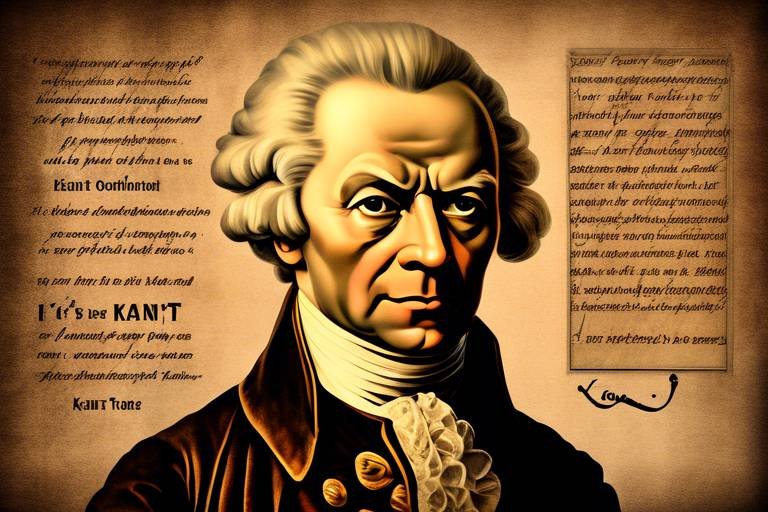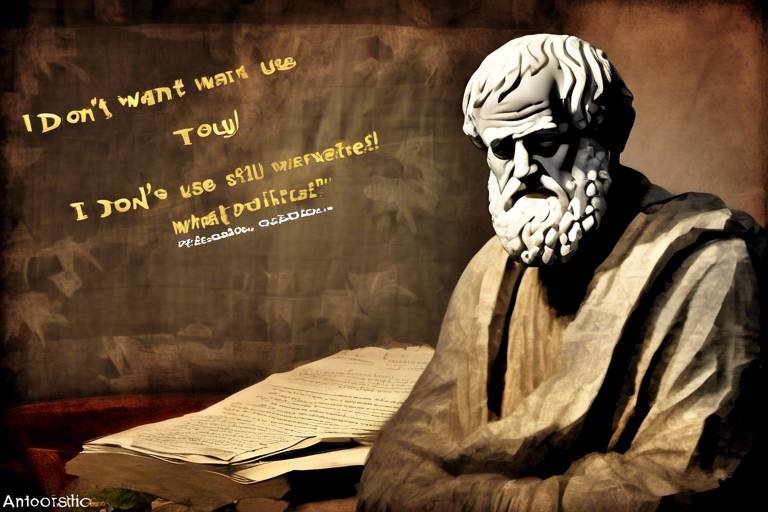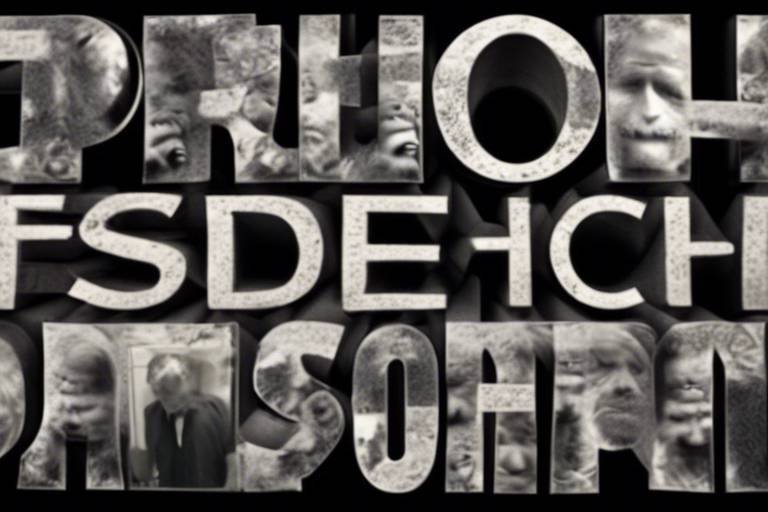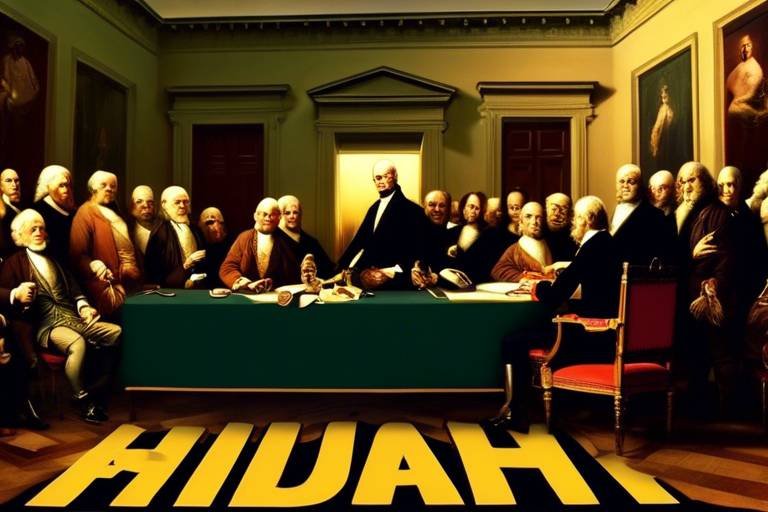Philosophy and the Politics of Memory Manipulation
The interplay between philosophy and the politics of memory manipulation is a fascinating and complex realm that beckons exploration. At its core, this relationship raises pivotal questions about the very fabric of our identities and the narratives that shape them. Memory is not just a collection of past events; it is a dynamic force that influences our present and future. When we consider how memories are crafted, altered, or erased, we begin to see the profound implications these actions have on society at large. In a world where information is power, the ability to manipulate memory can become a tool for control, shaping public perception and political landscapes.
Philosophically, memory can be viewed through various lenses. Existentialists might argue that our memories define our existence, shaping who we are and how we interact with the world. On the other hand, phenomenologists might focus on the subjective nature of memory, emphasizing that each individual's recollection is colored by personal experiences and emotions. This subjective nature of memory is crucial; it underscores the fact that our understanding of history is not a mere collection of facts but a tapestry woven from personal narratives, cultural contexts, and societal influences.
As we delve deeper into the political implications of memory manipulation, we can observe that it is often employed as a strategy to uphold power dynamics. Governments and institutions may alter historical narratives to foster a sense of unity or to justify actions taken in the past. This manipulation can lead to a collective amnesia, where societies forget inconvenient truths and embrace constructed memories that serve specific agendas. The ethical ramifications of such actions are profound, raising questions about the moral responsibilities of those in power and the potential consequences for individual autonomy and societal trust.
In examining the politics of memory manipulation, it is essential to recognize the tools used to shape public memory. Techniques such as propaganda, censorship, and misinformation play pivotal roles in this process. For instance, during wartime, governments may disseminate propaganda to create a narrative that vilifies the enemy while glorifying their own actions. This not only influences public sentiment but also shapes national identity, creating a shared memory that can either unite or divide citizens. The impact of these manipulated memories can be long-lasting, affecting generations and altering the course of history.
Ultimately, the politics of memory manipulation is a double-edged sword. While it can be used to unify and inspire, it can also be a mechanism of control and oppression. As we move forward in an increasingly digital age, the potential for memory manipulation is likely to grow. Technology offers new platforms for shaping collective memory, but it also poses challenges regarding authenticity and trust. The future of memory in politics will undoubtedly be shaped by these evolving dynamics, raising critical questions about the integrity of our shared narratives and the ethical implications of manipulating them.
- What is memory manipulation? - Memory manipulation refers to the process of altering, erasing, or constructing memories, often for political or social purposes.
- How does memory influence identity? - Memory plays a crucial role in shaping both personal and collective identities, as it informs how individuals and societies perceive their past.
- What are some historical examples of memory manipulation? - Historical instances include propaganda during wartime, censorship of dissenting views, and the revision of history textbooks.
- What are the ethical implications of manipulating memory? - The ethical concerns include the infringement on personal autonomy, the potential for societal division, and the erosion of trust in institutions.
- How might technology impact memory manipulation in the future? - As digital media evolves, it may provide new avenues for memory manipulation, raising questions about the authenticity of shared narratives.

The Nature of Memory
Understanding the intricate nature of memory is akin to peeling back the layers of an onion; each layer reveals something deeper and more complex about our existence. At its core, memory is not just a repository of past experiences but a dynamic force that shapes our identities and influences our perceptions of the world around us. Philosophically speaking, memory can be viewed through various lenses, each offering unique insights into its subjective nature. For instance, the existentialist perspective emphasizes the personal and often fragmented nature of memory, suggesting that our recollections are deeply intertwined with our sense of self and the choices we make. This viewpoint posits that memory is not merely a reflection of what has occurred but is actively involved in constructing our identity.
Moreover, memory plays a crucial role in shaping collective identities within societal narratives. When we think about how societies remember events, we realize that collective memory is often curated, influenced by cultural, political, and social factors. This leads us to ask: how do these narratives shape our understanding of history? For example, national holidays and memorials serve as powerful tools for collective remembrance, reinforcing shared values and experiences. However, this can also lead to a selective memory, where certain events are highlighted while others are obscured or forgotten. The implications of this are profound, as they can foster unity or division among different groups within society.
To illustrate this point further, consider the following table that highlights key aspects of memory:
| Aspect | Description |
|---|---|
| Subjectivity | Memory is inherently personal, influenced by emotions, perspectives, and experiences. |
| Collective Memory | Shared memories that shape group identity and societal narratives. |
| Influence on Identity | Memory plays a crucial role in the formation of both personal and collective identities. |
| Historical Revisionism | Manipulation of memory to serve political or ideological purposes. |
As we delve deeper into the philosophical implications of memory, we encounter questions that challenge our understanding of truth and reality. Are our memories reliable? Can we trust them to accurately represent our past? These inquiries lead us to explore the potential fallibility of memory, as research in psychology suggests that our recollections can be distorted over time. This distortion can be influenced by various factors, including external information, societal pressures, and even our own desires. Thus, memory becomes a complex interplay between reality and perception, raising ethical concerns about how memories can be manipulated for political gain.
In summary, the nature of memory is multifaceted and deeply intertwined with our identities and societal structures. By examining its philosophical foundations, we can better understand how memory influences not only individual experiences but also collective narratives that shape our understanding of the world. As we move forward in this exploration, it is essential to consider the implications of memory manipulation and how it can alter our perceptions of truth and history.

Historical Context of Memory Manipulation
Throughout history, the manipulation of memory has played a pivotal role in shaping public perception and political landscapes. From ancient civilizations to modern nation-states, the act of altering collective memory has often been employed as a tool of power. But why is memory so crucial in the political arena? It's because memory isn't just a personal experience; it’s a collective one that can unify or divide societies, often depending on who controls the narrative.
One of the earliest examples of memory manipulation can be traced back to the ancient empires, where rulers would commission monuments and texts that glorified their reigns while conveniently omitting any failures or dissent. This practice set a precedent for how history could be rewritten to serve the interests of those in power. Fast forward to the 20th century, and we see similar patterns emerge during significant events such as the World Wars and the Cold War.
During World War II, for instance, propaganda was not merely a tool for rallying troops; it was a sophisticated method of memory manipulation that sought to shape public perception of the enemy. Governments utilized various media—posters, films, and radio broadcasts—to create a narrative that justified their actions and vilified their opponents. The infamous "Uncle Sam Wants You" campaign is a prime example of how memory can be molded to inspire action and instill a sense of duty among citizens.
Examining specific historical instances reveals the tactics employed for memory manipulation. Take the case of the Soviet Union, where the state actively revised history to eliminate any references to political purges or failures. This approach not only altered the collective memory of the populace but also created a sense of loyalty to a regime that was, in many ways, built on a fabricated foundation of glory and success. The consequences of such alterations were profound, affecting everything from individual identities to societal cohesion.
To understand the mechanisms of memory manipulation, it’s essential to explore the various propaganda techniques employed throughout history. These techniques include:
- Censorship: Suppressing information that contradicts the desired narrative.
- Misinformation: Spreading false information to confuse or mislead the public.
- Revision of Historical Narratives: Altering historical accounts to align with current political agendas.
These tactics not only shape public memory but also influence how future generations perceive their history, often leading to a distorted understanding of past events.
The manipulation of memory can have significant implications for national identity. Governments often use collective memory as a means to foster unity, creating a shared narrative that binds citizens together. However, this can also lead to division, especially when certain groups are excluded from the narrative. For example, the way history is taught in schools can either promote a sense of national pride or instill feelings of alienation among marginalized communities.
In summary, the historical context of memory manipulation reveals a complex interplay between power, identity, and societal narratives. By examining past instances, we can better understand the motivations behind memory manipulation and its enduring impact on contemporary politics.
- What is memory manipulation? Memory manipulation refers to the process of altering or influencing collective or individual memories to achieve a specific political or social outcome.
- Why is memory important in politics? Memory shapes collective identity and influences public perception, making it a powerful tool for political agendas.
- Can memory manipulation have positive effects? While often seen negatively, memory manipulation can sometimes foster unity and a shared sense of purpose among citizens when used responsibly.

Case Studies in History
Throughout history, there have been numerous instances where memory manipulation has played a pivotal role in shaping societal narratives and political agendas. These case studies not only reveal the tactics employed but also highlight the profound consequences of altering collective memory. One of the most striking examples is the use of propaganda during wartime. Governments have often resorted to manipulating information to create a specific narrative that serves their objectives. For instance, during World War II, both the Allies and the Axis powers engaged in extensive propaganda campaigns, crafting stories that demonized the enemy while glorifying their own cause.
Another telling example can be found in the aftermath of the Vietnam War. The U.S. government initially presented the conflict as a noble endeavor, aimed at stopping the spread of communism. However, as the war dragged on and public sentiment shifted, the narrative began to change. The government attempted to reshape public memory by emphasizing the sacrifices of soldiers and downplaying the war's controversial aspects. This manipulation of memory not only affected how the war was perceived domestically but also influenced international relations and the way future conflicts were approached.
In more recent history, the manipulation of memory can be seen in the context of the 9/11 attacks. The events of September 11, 2001, were framed within a specific narrative that emphasized heroism and victimhood, leading to a collective memory that justified the subsequent wars in Afghanistan and Iraq. The portrayal of these events in media and political discourse has led to a simplified understanding of complex geopolitical issues, illustrating how memory can be shaped to serve political ends.
Here are some common techniques used in these historical case studies:
- Censorship: Controlling information to suppress dissenting views.
- Misinformation: Spreading false information to create confusion and manipulate perceptions.
- Revisionism: Altering historical narratives to align with current political ideologies.
These tactics not only manipulate public perception but also contribute to a collective amnesia regarding the complexities of history. The consequences of such manipulation can be dire, leading to societal divisions and a distorted understanding of national identity. As we examine these case studies, it becomes clear that memory is not merely a passive repository of the past; it is an active and powerful tool in the hands of those who seek to control the narrative.
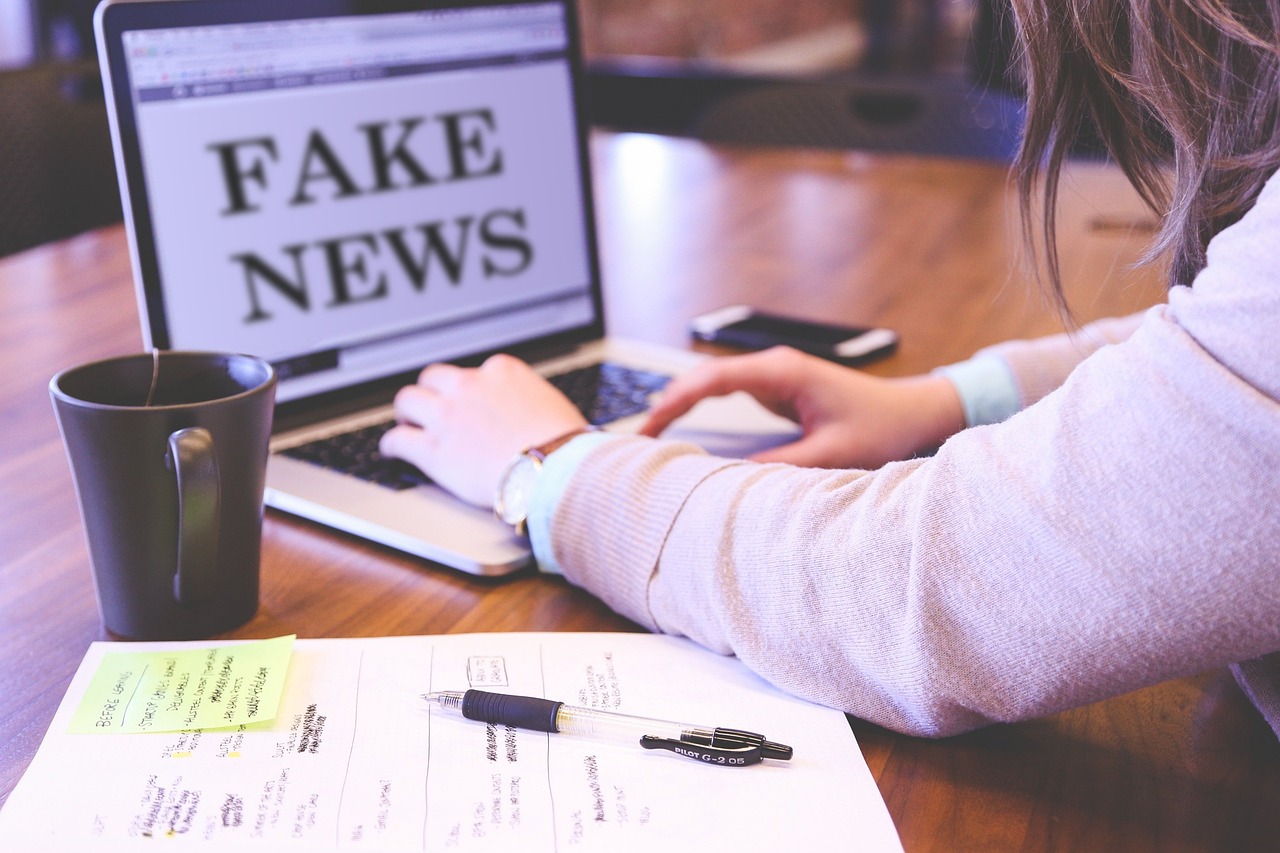
Propaganda Techniques
When we think about propaganda, it’s easy to imagine loudspeakers blaring government-approved messages or posters plastered across city walls. However, the art of propaganda is far more nuanced and intricate than that. It’s a sophisticated dance of language, imagery, and emotion designed to sway public opinion and reshape collective memory. At its core, propaganda techniques can be categorized into various methods that serve to manipulate how we remember events, individuals, and ideologies.
One of the most prevalent techniques is censorship. By selectively omitting information, authorities can control the narrative surrounding a particular issue. For instance, during wartime, governments often restrict access to certain media, preventing citizens from seeing the full scope of the conflict. This not only shapes public perception but also creates a skewed memory of events. Imagine a painter who only uses certain colors to depict a landscape; the final image will be drastically different from reality, and so too is the memory shaped by censorship.
Another powerful tool in the propaganda arsenal is misinformation. This involves spreading false or misleading information to confuse or mislead the public. In the digital age, misinformation can spread like wildfire, often faster than the truth can catch up. Social media platforms have become breeding grounds for such tactics, where a single tweet can alter public perception in a matter of minutes. Consider the ramifications: when people are fed a steady diet of misinformation, their memories of events can be completely altered, leading to a distorted understanding of reality.
Moreover, the revision of historical narratives is a technique that has been employed throughout history to serve political ends. Governments may choose to highlight certain events while downplaying or completely ignoring others. This selective memory can foster a sense of national pride or unity, but it can also create division and conflict. For example, countries often celebrate victories in war while glossing over the suffering and loss that accompanied those conflicts. This creates a collective memory that is not only incomplete but also heavily biased.
To illustrate these techniques effectively, let’s look at a table summarizing key propaganda methods:
| Technique | Description | Example |
|---|---|---|
| Censorship | Selective omission of information to control the narrative. | Media restrictions during wartime. |
| Misinformation | Spreading false information to mislead the public. | Fake news on social media platforms. |
| Revision of Historical Narratives | Highlighting certain events while downplaying others. | National celebrations that ignore historical atrocities. |
These propaganda techniques are not merely tactics; they are weapons of influence that can reshape the very fabric of society. By understanding how these methods work, we can become more critical consumers of information and better equipped to navigate the murky waters of public memory. After all, if memory is the foundation of our identity, then its manipulation is a direct assault on who we are as individuals and as a society.
- What is propaganda? Propaganda is information, often biased or misleading, used to promote a particular political cause or point of view.
- How does censorship impact memory? Censorship limits access to information, thereby shaping how events are remembered and understood.
- What role does social media play in misinformation? Social media can rapidly disseminate misinformation, often outpacing the truth and altering public perception.
- Can historical narratives be changed? Yes, governments and organizations can revise historical narratives to align with current political agendas, affecting collective memory.

Impact on National Identity
The manipulation of memory plays a profound role in shaping national identity, often acting as a double-edged sword. On one side, it can foster a sense of unity and belonging among citizens, while on the other, it can deepen divisions and create rifts in society. When governments or political entities choose to emphasize certain historical narratives over others, they are essentially crafting a collective memory that influences how citizens perceive their nation and its values. This selective memory can lead to a homogenized view of history that glorifies certain events while marginalizing others, which can have lasting effects on national identity.
For instance, consider how countries commemorate their independence or significant historical events. These commemorations are not merely celebrations; they are powerful tools that shape public memory. By celebrating specific narratives, governments can instill a sense of pride and patriotism among citizens. However, this can also result in the erasure of uncomfortable truths, such as colonial pasts or civil rights struggles. When certain stories are told while others are silenced, it creates a skewed understanding of national identity that can alienate certain groups within the population.
In many cases, the impact of memory manipulation on national identity can be observed through the following mechanisms:
- Historical Revisionism: Governments may alter historical accounts to align with current political ideologies, leading to a distorted national narrative.
- Censorship: Suppressing dissenting voices and alternative histories can create a monolithic view of what it means to belong to a nation.
- National Myths: The creation of myths around national heroes or events can foster a sense of unity but may also lead to exclusion of those who do not fit into this narrative.
Moreover, the impact on national identity is not just theoretical; it has real-world implications. For example, in countries where historical grievances are downplayed or ignored, marginalized communities may feel disenfranchised, leading to social unrest. This can create a cycle of resentment and division, where different groups within the nation have conflicting memories of the past. Ultimately, the way memory is manipulated can either build bridges between communities or erect walls that divide them further.
As we navigate this complex landscape, it becomes essential to recognize the ethical responsibilities of those in power. The narratives that are promoted or suppressed can shape not just the identity of a nation but also its future. Will we continue to allow memory manipulation to dictate our collective identity, or will we strive for a more inclusive understanding that honors all facets of our shared history? The answer to this question will determine the trajectory of national identity for generations to come.
- What is memory manipulation?
Memory manipulation refers to the deliberate alteration of collective or individual memories, often for political or ideological purposes. - How does memory manipulation affect national identity?
It can create a unified national narrative that excludes certain histories, leading to feelings of alienation among marginalized groups. - What are some examples of memory manipulation?
Examples include propaganda during wartime, historical revisionism, and censorship of dissenting narratives. - Why is it important to address memory manipulation?
Addressing memory manipulation is crucial for fostering a more inclusive society and ensuring that all voices and histories are recognized and valued.

Philosophical Perspectives
When we delve into the philosophical perspectives on memory, we uncover a rich tapestry of thought that reveals not just how we remember, but also how those memories shape our very existence. Philosophy has long grappled with the nature of memory, presenting various theories that challenge our understanding of reality and identity. For instance, existentialists like Jean-Paul Sartre argue that memory is not merely a passive repository of past experiences; rather, it actively constructs our identity and influences our choices. Sartre posited that our memories are intertwined with our freedom, as they inform our decisions and shape our perception of self.
On the other hand, phenomenology, championed by thinkers like Edmund Husserl and Maurice Merleau-Ponty, emphasizes the subjective experience of memory. They argue that memory is an embodied experience, deeply rooted in our perceptions and interactions with the world around us. This perspective highlights how memory is not just a mental faculty but is also influenced by our physical and emotional states. For phenomenologists, every recollection is colored by the context in which it occurs, suggesting that our memories are fluid and can change over time, reflecting our evolving identities.
Moreover, the interplay between memory and societal norms cannot be overlooked. The philosopher Michel Foucault explored how memory is manipulated by power structures, suggesting that those in authority often shape collective memory to maintain control over societal narratives. This manipulation can create a shared memory that aligns with political agendas, effectively altering how individuals and communities perceive their past. Foucault's perspective invites us to question the authenticity of our memories and the motivations behind their preservation or alteration.
In examining these philosophical perspectives, we can identify several key themes that emerge regarding memory:
- Subjectivity: Memory is inherently personal and influenced by individual experiences.
- Constructed Identity: Our memories contribute significantly to our sense of self and identity.
- Power Dynamics: Memory can be manipulated by those in power to shape collective narratives.
As we navigate the complexities of memory, it becomes evident that our understanding of it is not static but rather a dynamic interplay of philosophical thought, personal experience, and societal influence. The implications of these perspectives extend beyond individual recollections, prompting us to consider how our collective memories shape our political landscapes and societal structures.
- What is the philosophical significance of memory?
Memory is crucial for understanding identity and existence, shaping how we perceive ourselves and our place in the world. - How does memory manipulation affect society?
Manipulating memory can alter collective narratives, impacting social cohesion and political power dynamics. - Can memory be trusted?
Memory is subjective and can be influenced by various factors, making it essential to critically evaluate our recollections.
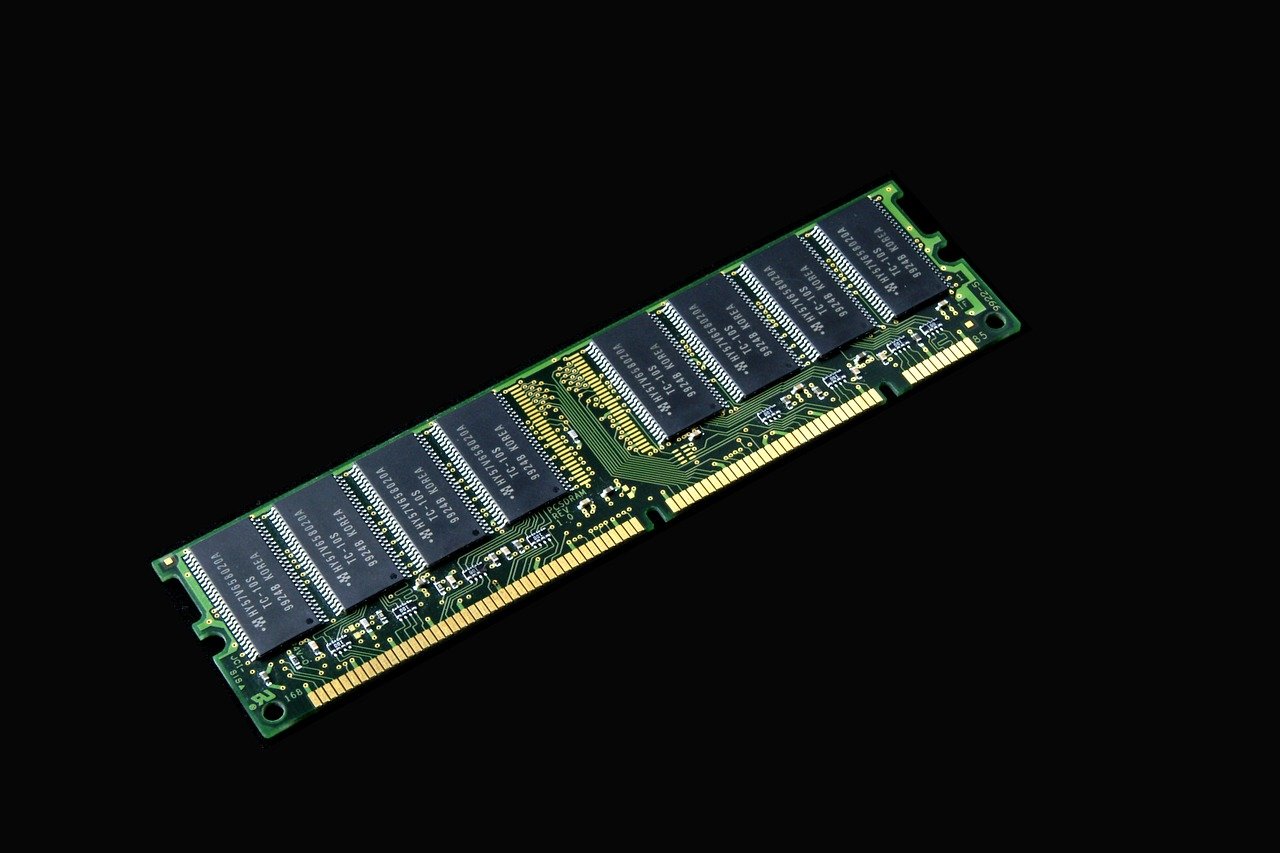
Ethical Implications of Memory Manipulation
The ethical implications of memory manipulation are as complex as they are profound. When we delve into this topic, we find ourselves navigating a labyrinth of moral responsibilities, individual autonomy, and societal trust. Memory, after all, is not just a personal archive; it shapes our identities and informs our decisions. When those memories are altered, whether intentionally or unintentionally, the very foundation of our understanding of self and society can be compromised.
One of the most pressing ethical concerns surrounding memory manipulation is the issue of autonomy and consent. Imagine waking up one day with memories that feel foreign or fabricated, memories that have been implanted or altered by external forces. This scenario raises significant questions: Who has the right to alter our memories? Is it ethical for anyone, especially those in positions of power, to change our recollections for their own purposes? The act of manipulating memory can infringe upon personal agency, leading to a loss of control over one’s own narrative. This is particularly concerning in political contexts, where leaders may seek to reshape collective memories to align with their agendas.
Moreover, the relationship between memory manipulation and trust in institutions cannot be overlooked. When governments or organizations engage in practices that distort public memory, they risk eroding the trust that citizens place in them. For instance, if a government revises historical events to present a more favorable image, it creates a chasm between reality and perception. This distortion can have far-reaching implications for democracy and governance. Citizens may begin to question the authenticity of information presented to them, leading to widespread skepticism and disillusionment.
To illustrate these complexities, consider the following table that summarizes the key ethical concerns related to memory manipulation:
| Ethical Concern | Description |
|---|---|
| Autonomy | Manipulating memories can infringe on personal agency and control over one's own narrative. |
| Consent | Altering memories without consent raises moral questions about the right to personal history. |
| Trust in Institutions | Distorted memories can erode public trust, leading to skepticism towards governments and organizations. |
| Social Cohesion | Memory manipulation can create divisions within society, affecting national identity and unity. |
As we ponder these ethical dilemmas, it's essential to recognize that memory manipulation is not merely a theoretical concern; it has real-world implications that can affect individuals and societies at large. The consequences of altering memories can ripple through generations, influencing how communities perceive their history and identity. In an age where technology enables unprecedented access to information—and misinformation—the stakes are higher than ever.
Ultimately, the ethical landscape surrounding memory manipulation is fraught with challenges. As we navigate this terrain, we must ask ourselves: How do we ensure that memory remains a tool for empowerment rather than a weapon for control? The answers may not be straightforward, but they are crucial for the health of our societies and the integrity of our personal identities.
- What is memory manipulation? Memory manipulation refers to the alteration or distortion of memories, often for political or social purposes.
- Why is autonomy important in the context of memory? Autonomy is crucial because it ensures individuals retain control over their personal narratives and identities.
- How does memory manipulation affect trust in institutions? It can lead to skepticism and disillusionment, as citizens may question the authenticity of the information provided by these institutions.
- What are the potential consequences of memory manipulation on society? It can create divisions, alter national identity, and influence how history is perceived and understood.
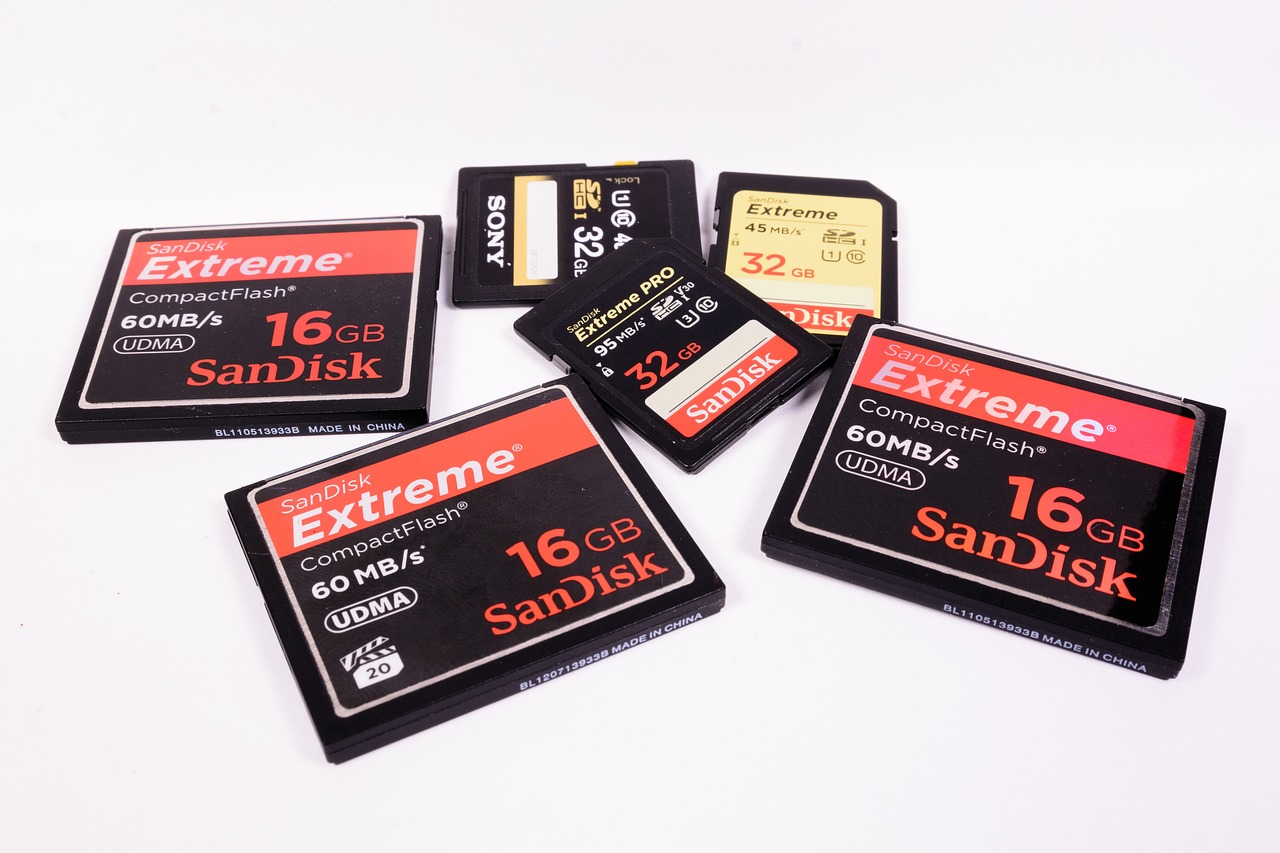
Autonomy and Consent
The concept of autonomy is deeply intertwined with the notion of consent, especially when we delve into the realm of memory manipulation. Imagine your memories as a personal tapestry, woven together with experiences that define who you are. Now, what happens if someone comes along and starts pulling threads from that tapestry, altering the very fabric of your identity? This is where the ethical dilemmas of memory manipulation come into play, raising critical questions about individual agency and the right to control one’s own narrative.
When we talk about autonomy in the context of memory, we are essentially discussing the ability of individuals to govern themselves and make choices that reflect their true selves. Memory, after all, is not just a collection of past events; it is a crucial component of our decision-making processes, shaping our beliefs, values, and actions. If memories can be manipulated, then the very foundation of our autonomy is at risk. For instance, consider a scenario where a government employs advanced technology to alter citizens' memories, convincing them that a particular political leader is benevolent when, in reality, their actions have been detrimental. In such cases, the individual's ability to make informed decisions is severely compromised.
Consent plays a vital role in this discussion. In an ideal world, individuals should have the right to consent to any alterations made to their memories. However, the reality is often much murkier. Who decides what memories are altered, and based on what criteria? Is it ethical to manipulate memories for the sake of social harmony or political stability? These are questions that challenge our moral compass. The potential for abuse is significant. Without clear guidelines and ethical frameworks, the line between beneficial memory alteration and harmful manipulation can easily blur.
Moreover, the implications of memory manipulation extend beyond individual autonomy. They can reverberate throughout society, leading to a breakdown of trust in institutions. When people discover that their memories have been tampered with, it can lead to feelings of betrayal and disillusionment. This erosion of trust can have dire consequences for democracy and governance, as citizens may become skeptical of the very institutions meant to protect their rights.
To illustrate the complexity of these issues, let’s consider a few key points:
- Informed Consent: Individuals must be fully aware of the implications of memory manipulation before consenting to any changes.
- Ethical Guidelines: Establishing clear ethical standards is crucial to prevent abuse of power.
- Public Awareness: Increasing awareness about the potential for memory manipulation can empower citizens to protect their autonomy.
In conclusion, the intersection of autonomy and consent in memory manipulation presents a labyrinth of ethical challenges. As technology continues to advance, it is imperative that we engage in ongoing discussions about the moral responsibilities of those in power. Only through a collective effort can we safeguard individual autonomy and ensure that consent remains a cornerstone of our society. The future of memory manipulation holds both promise and peril, and it is our duty to navigate this complex landscape with vigilance and integrity.
- What is memory manipulation? Memory manipulation refers to the alteration or distortion of an individual's memories, often for political or social purposes.
- How does memory manipulation affect autonomy? It undermines an individual's ability to make informed choices based on their true experiences and beliefs.
- Why is consent important in memory manipulation? Consent ensures that individuals have the right to control their own narratives and make choices about their experiences.
- What are the ethical implications of memory manipulation? Ethical implications include the potential for abuse of power, loss of trust in institutions, and the erosion of personal agency.

Trust in Institutions
Trust in institutions is a cornerstone of a functioning democracy, yet it can be profoundly affected by the manipulation of memory. When memories are distorted or selectively presented, the public's perception of institutions—be it the government, media, or educational organizations—can shift dramatically. This shift can lead to a crisis of confidence where citizens begin to question the motives and integrity of those in power. Have you ever wondered how a single event can change the way we view an entire institution? It’s fascinating and frightening at the same time.
Consider this: when a government revises its historical narrative to paint itself in a more favorable light, it doesn’t just alter the past; it reshapes the future. Citizens might start to believe that their institutions are infallible or, conversely, that they are untrustworthy. This manipulation can create a feedback loop where distrust breeds further skepticism, leading to a society that is polarized and fragmented. The implications are staggering—if we can’t trust our institutions, can we trust each other?
Moreover, the impact of memory manipulation on trust is not just theoretical; it has real-world consequences. For instance, during times of crisis, such as natural disasters or public health emergencies, the way institutions communicate and the memories they evoke can either unite or divide the public. If a government’s response is framed in a way that highlights past successes while downplaying failures, it can foster a sense of security. However, should the public discover inconsistencies in these narratives, the fallout can be catastrophic. People may feel betrayed, leading to protests, civil unrest, or even calls for reform.
To illustrate this concept further, let's take a look at a table that summarizes how memory manipulation can affect trust in various institutions:
| Institution | Memory Manipulation Technique | Impact on Trust |
|---|---|---|
| Government | Selective Historical Narratives | Increased skepticism and division |
| Media | Misinformation and Censorship | Loss of credibility and public trust |
| Educational Institutions | Curriculum Revision | Confusion and questioning of authority |
As we navigate through this complex landscape, it’s crucial to foster a culture of transparency and accountability within institutions. Citizens must be encouraged to engage critically with the information presented to them, questioning not just the content but the context in which it is delivered. After all, trust is built on a foundation of honesty and integrity. When institutions manipulate memory, they not only jeopardize their own credibility but also the very fabric of society.
In conclusion, the relationship between memory manipulation and trust in institutions is intricate and multifaceted. As we continue to grapple with the implications of altered memories, it’s essential to remain vigilant, ensuring that our institutions uphold the principles of truth and transparency. Only then can we hope to restore and maintain the trust that is vital for a healthy democracy.
- What is memory manipulation? Memory manipulation refers to the alteration or distortion of memories, often for political or ideological purposes.
- How does memory manipulation affect trust in institutions? It can lead to skepticism and division among the public, undermining confidence in governmental and societal structures.
- Can memory manipulation be reversed? While it is challenging, promoting transparency and encouraging critical thinking can help restore trust and correct distorted narratives.

The Future of Memory in Politics
As we stand on the brink of a new era, the future of memory in politics is poised to undergo radical transformations, driven primarily by technological advancements. The rise of digital media has not only changed how we communicate but also how we remember. In a world where information is at our fingertips, the manipulation of memory can be both a tool for empowerment and a weapon of control. But what does this mean for the political landscape?
One of the most significant changes we are witnessing is the acceleration of information dissemination. Social media platforms, blogs, and online news outlets allow for rapid sharing of narratives, often without thorough fact-checking. This immediacy can lead to the creation of digital echo chambers, where individuals are exposed only to information that reinforces their existing beliefs. As a result, collective memory can be skewed, with certain events or perspectives being amplified while others fade into obscurity.
Moreover, the potential for artificial intelligence to influence memory is both fascinating and frightening. AI algorithms can curate news feeds, shaping what we see and, consequently, what we remember. Imagine an AI that selectively presents historical events to promote a particular political agenda. The implications of this are profound, as it raises questions about who controls the narrative and how that control affects our understanding of history and identity.
In addition to AI, the advent of virtual reality (VR) and augmented reality (AR) presents new avenues for memory manipulation. These technologies can create immersive experiences that alter perceptions of reality, making it easier for political entities to craft compelling narratives. For instance, a VR simulation of a historical event could evoke strong emotional responses, potentially influencing public opinion and memory. This brings us to a crucial ethical consideration: as these technologies evolve, so too must our understanding of their impact on individual and collective memory.
The political implications of memory manipulation extend beyond mere narratives; they touch on the very fabric of our democracy. When memories are distorted, trust in institutions erodes. Citizens become skeptical of the information they receive, leading to a crisis of confidence in governance. This skepticism can fuel political polarization, as individuals retreat into their ideological corners, further complicating the quest for common ground.
As we look to the future, it's essential to consider how we can safeguard against the potential dangers of memory manipulation. Here are a few strategies that could help:
- Promoting Media Literacy: Educating citizens about the importance of critical thinking and the ability to discern credible sources can empower individuals to navigate the complex information landscape.
- Encouraging Transparency: Political entities should be held accountable for their narratives. Transparency in information dissemination can help restore trust and promote informed public discourse.
- Regulating AI and VR Technologies: As these technologies develop, establishing ethical guidelines and regulations will be crucial to prevent misuse in political contexts.
Ultimately, the future of memory in politics is a double-edged sword. While technology offers unprecedented opportunities for connection and understanding, it also poses significant risks to our collective memory and identity. As we navigate this landscape, we must remain vigilant, ensuring that memory serves as a bridge to understanding rather than a barrier to truth.
Q1: How can technology influence our memories?
A1: Technology can shape our memories by controlling the information we consume, creating echo chambers, and utilizing immersive experiences that alter our perceptions of reality.
Q2: What are some ethical concerns regarding memory manipulation?
A2: Ethical concerns include the potential for loss of individual autonomy, the distortion of historical facts, and the erosion of trust in institutions, all of which can undermine democratic processes.
Q3: How can we protect ourselves from memory manipulation?
A3: Promoting media literacy, encouraging transparency in information dissemination, and regulating emerging technologies can help safeguard against the risks of memory manipulation.
Frequently Asked Questions
- What is memory manipulation?
Memory manipulation refers to the act of altering, influencing, or controlling how memories are formed, recalled, or perceived. This can occur through various means, such as propaganda, censorship, or even technological interventions. It's a complex process that raises ethical questions about autonomy and the integrity of personal and collective identities.
- How does memory influence identity?
Memory plays a crucial role in shaping both personal and collective identities. Our memories inform our beliefs, values, and perceptions of the world. When memories are manipulated, it can lead to a distorted sense of self or national identity, affecting how individuals and societies understand their past and navigate their future.
- What are some historical examples of memory manipulation?
Historical instances of memory manipulation include wartime propaganda, where governments have revised narratives to unify citizens or demonize enemies. Examples like the Soviet Union's portrayal of World War II or the use of propaganda during the Vietnam War illustrate how memory can be politically weaponized to serve specific agendas.
- What are the ethical implications of manipulating memory?
The ethical implications are significant. Manipulating memory can infringe on personal autonomy, as individuals may lose control over their own narratives. Additionally, it raises concerns about trust in institutions, as distorted memories can erode public confidence in governance and societal structures.
- How can memory manipulation affect public trust?
When memories are manipulated, it can lead to a breakdown of trust in public institutions. If citizens believe that their memories of events have been altered or misrepresented, it can create skepticism and cynicism towards those in power, ultimately threatening the foundations of democracy.
- What role does technology play in memory manipulation?
Technology plays a growing role in memory manipulation, particularly through digital media. The rise of social media and advanced algorithms can shape collective memory by controlling what information is disseminated and how it is framed. This raises concerns about the future of political discourse and the authenticity of shared memories.










